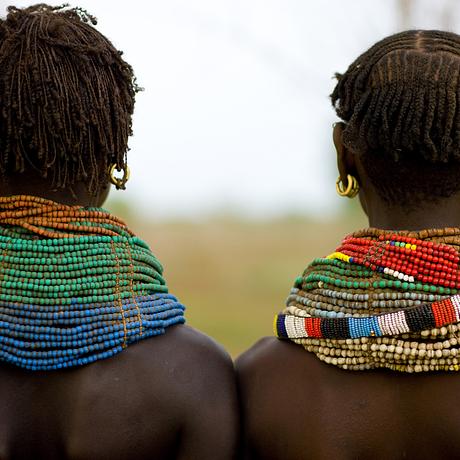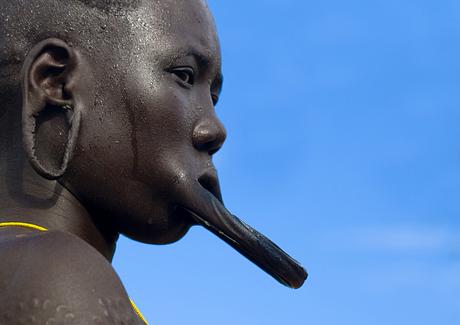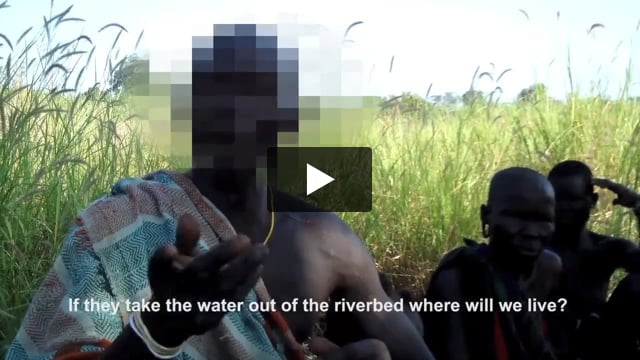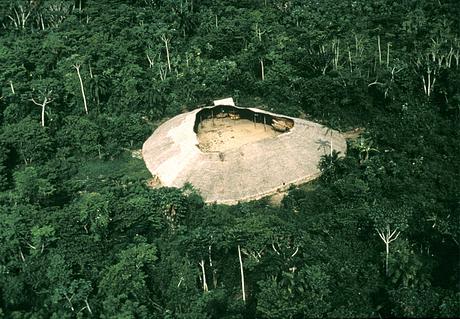Ethiopia strikes out at Survival
April 10, 2011
 © Eric Lafforgue/Survival
© Eric Lafforgue/SurvivalThis page was last updated in 2011 and may contain language which is now outdated.
Prime Minister Meles Zenawi’s recent outburst against Survival International falls very far short of the mark. He claims organizations like Survival International which are campaigning against the controversial Gilgel Gibe III dam being built across the Omo River in Ethiopia are ‘irrational and bordering on criminal’.
The Ethiopian embassy in Germany accuses Survival of making ‘baseless and unfounded allegations’, of doing an ‘evil job’ and being ‘committed to do everything at its disposal to derail the economic development of the country.’
Survival does not want to stop projects that will improve the lot of the Ethiopian people. And although we have serious doubts whether the Gibe III project can possibly achieve this result – doubts which might be shared by the European Investment Bank and the African Development Bank, which have both decided not to fund the dam – we accept that ultimately this is a matter for the Government of Ethiopia to decide.
But the Government has got to make its decisions in line with international commitments that it has freely entered and its own constitution, which is very clear on this: ‘All international agreements ratified by Ethiopia are an integral part of the law of the land.’ (Article 9, no.4). It also states that ‘people have the right to full consultation and to the expression of views in the planning and implementations of… projects that affect them directly.’ (Article 92, no 4).
Unfortunately, the government prefers to launch vitriolic attacks on anyone who draws attention to the fact that it has chosen systematically to ignore these commitments.
The Prime Minister says that the ‘rational question’ to ask is whether the adverse impact of Gibe III has been ‘reduced to the maximum extent possible [and] whether adequate redress and compensation is available.’ The ‘answer’ to this question is that no serious attempt has been made to mitigate the impact of Gibe III, and that there is no credible evidence that downstream tribal communities will be compensated adequately or at all.
But the Prime Minister has asked the wrong question. He has assumed that so long as he mitigates the impact and pays compensation, any sacrifice required of the downstream communities can be justified in order to promote the development of the nation as a whole. This is entirely wrong, as Zenawi himself is well aware.
It is now 35 years since Ethiopia ratified the UN Race Convention, and therefore accepted that ‘development objectives are no justification for encroachments on human rights.’ The country confirmed its commitment to this principle when it voted in 1993 for the Vienna Declaration, which explicitly spelt out that ‘the lack of development may not be invoked to justify the abridgement of internationally recognised human rights.’ Other treaties ratified by Ethiopia that endorse the same principle include the UN Civil and Political Rights Covenant and the African Charter.
Each of these treaties also recognises the right of communities to be properly consulted about development projects that affect them. Most recently, in 2007 the UN Declaration on the Rights of Indigenous Peoples confirmed that ‘States shall consult and co-operate in good faith with the Indigenous peoples concerned to obtain their free and informed consent to the approval of any project affecting their lands or other resources, particularly in connection with the development of … water resources.’
Ethiopia did not object to the Declaration, but has not made the slightest effort to obtain the free and informed consent of the tribal communities downstream of Gibe III. It cannot pretend that it has. So long as Zenawi continues to do the very thing that he has repeatedly promised not to do, Survival and others like us will continue to call him to account. Who knows – eventually he may actually focus on the issues, rather than on the colour of our skin or the conduct of our colonial forbears.




